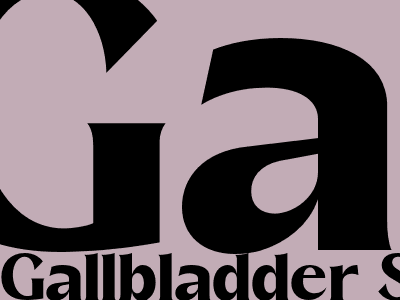All You Need to Know About Gallbladder Surgery
Gallbladder Surgery: Overview
If you're experiencing severe pain, inflammation, or other complications associated with your gallbladder, you may need to consider surgery to remove it. Gallbladder removal, also known as a cholecystectomy, is a common procedure with high success rates. Understanding the details of gallbladder surgery can help you make an informed decision if you find yourself facing this prospect. In this article, we'll delve into the purpose, procedure, recovery, and potential risks associated with gallbladder surgery.
Pre-Surgery Considerations
Before the surgery, your doctor will comprehensively evaluate your medical history and symptoms. Imaging tests, such as an ultrasound or CT scan, are usually performed to confirm the diagnosis and assess the condition of your gallbladder. In some cases, blood tests may also be conducted to check your liver function. This pre-surgery assessment helps ensure the best possible outcome and minimize any potential risks.
Surgical Procedure
Gallbladder surgery is commonly performed laparoscopically. It involves making small incisions in your abdomen and using specialized instruments to detach and remove the gallbladder. In some cases, an open surgery approach might be necessary, which involves a larger incision to directly access the gallbladder. The choice of surgery method depends on factors such as the severity of your condition and the surgeon's assessment.
Laparoscopic Surgery
Laparoscopic surgery is a minimally invasive technique that provides several benefits, including less pain, reduced scarring, and a faster recovery time compared to open surgery. During laparoscopy, your surgeon inserts a laparoscope, a thin instrument with a camera, through one of the small incisions. The laparoscope provides a clear view of the surgical area, allowing the surgeon to precisely remove the gallbladder using specialized instruments inserted through the other incisions.
Open Surgery
Open surgery may be recommended in certain situations, such as when the gallbladder is severely inflamed or there are complications involving surrounding organs. During open surgery, the surgeon makes a larger incision in the abdomen to directly access and remove the gallbladder. While this approach offers more direct access, it typically results in a longer recovery time and more noticeable scarring compared to laparoscopic surgery.
Post-Surgery Recovery
After gallbladder surgery, you'll be taken to a recovery room for observation. Most patients can return home the same day or after an overnight stay in the hospital. Recovery time varies depending on the surgical method and individual factors, but most people can resume light activities within a week. It's important to follow your surgeon's instructions carefully during recovery, including taking prescribed medications, maintaining a healthy diet, and getting adequate rest.
Potential Risks and Complications
As with any surgery, gallbladder removal carries potential risks and complications. These are generally rare, but it's essential to be aware of them before making a decision. Some potential complications include:
- Bleeding: Excessive bleeding during or after surgery is a potential risk.
- Infection: Surgical wounds can become infected, requiring treatment with antibiotics.
- Bile leakage: In rare cases, bile can leak from the surgical site, leading to pain or infection.
- Injury to nearby structures: During the surgery, there's a slight risk of damaging nearby organs, such as the bile duct or intestines.
- Recurrence: In some cases, gallstones may form again after surgery, although this is uncommon.
Conclusion
Gallbladder surgery is a common procedure with high success rates and significant benefits for patients experiencing severe gallbladder-related complications. Understanding the details of gallbladder surgery, including pre-surgery considerations, surgical methods, recovery, and potential risks, can empower you to make informed decisions about your health. If you're facing the prospect of gallbladder surgery, it's crucial to consult with your doctor to discuss the specific details and potential implications relevant to your individual situation.

Comments